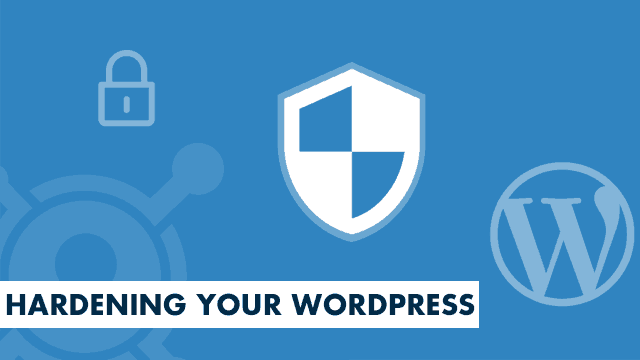No products in the cart.
WordPress Support
How to Hardening WordPress?
Security in WordPress is viewed extremely in a serious way, however likewise with some other framework there are potential security gives that may emerge if some essential security precautionary measures aren’t taken. This article will go through some normal types of weaknesses, and the things you can never really keep your WordPress establishment secure. WordPress Support
This article isn’t a definitive convenient solution to your security concerns. On the off chance that you have explicit security concerns or questions, you ought to examine them with individuals whom you trust to have adequate information on PC security and WordPress.

What is Security?
Essentially, security isn’t about completely secure frameworks. Something like this likely could be illogical, or difficult to track down or potentially keep up with. What security is however is hazard decrease, not hazard disposal. It’s tied in with utilizing every one of the suitable controls accessible to you, sensibly speaking, that permit you to further develop your general stance decreasing the chances of making yourself an objective, accordingly getting hacked.
Website Hosts
Regularly, a decent spot to begin with regards to site security is your facilitating climate. Today, there are various choices accessible to you, and keeping in mind that hosts offer security to a specific level, get where their duty closes and yours starts. Here is a decent article clarifying the convoluted dynamic between web has and the security of your site. A safe worker secures the protection, trustworthiness, and accessibility of the assets under the worker executive’s control.
Qualities of a trusted web host might include:
- Readily discusses your security concerns and which security features and processes they offer with their hosting.
- Provides the most recent stable versions of all server software.
- Provides reliable methods for backup and recovery.
Decide which security you need on your server by determining the software and data that needs to be secured. The rest of this guide will help you with this.
Website Applications
It’s not difficult to see web has and pass the obligation of safety to them, however there is an enormous measure of safety that lies on the site proprietor too. Web has are frequently answerable for the framework on which your site sits, they are not liable for the application you decide to introduce.
To understand where and why this is important you must understand how websites get hacked, Rarely is it attributed to the infrastructure, and most often attributed to the application itself (i.e., the environment you are responsible for).
Security Themes
Keep in mind some general ideas while considering security for each aspect of your system:
Limiting access
Making smart choices that reduce possible entry points available to a malicious person.
Containment
Your system should be configured to minimize the amount of damage that can be done in the event that it is compromised.
Preparation and knowledge
Keeping backups and knowing the state of your WordPress installation at regular intervals. Having a plan to backup and recover your installation in the case of catastrophe can help you get back online faster in the case of a problem.
Trusted Sources
Do not get plugins/themes from untrusted sources. Restrict yourself to the WordPress.org repository or well known companies. Trying to get plugins/themes from the outside may lead to issues.
Vulnerabilities on Your Computer
Make sure the computers you use are free of spyware, malware, and virus infections. No amount of security in WordPress or on your web server will make the slightest difference if there is a keylogger on your computer.
Always keep your operating system and the software on it, especially your web browser, up to date to protect you from security vulnerabilities. If you are browsing untrusted sites, we also recommend using tools like no-script (or disabling javascript/flash/java) in your browser.
Vulnerabilities in WordPress
In the same way as other present day programming bundles, WordPress is refreshed routinely to address new security gives that may emerge. Further developing programming security is consistently a continuous concern, and to that end you ought to consistently stay up with the latest with the most recent adaptation of WordPress. More established variants of WordPress are not kept up with security refreshes.
Updating WordPress
Main article: Updating WordPress.
The latest version of WordPress is always available from the main WordPress website at https://wordpress.org. Official releases are not available from other sites — never download or install WordPress from any website other than https://wordpress.org.
Since version 3.7, WordPress has featured automatic updates. Use this functionality to ease the process of keeping up to date. You can also use the WordPress Dashboard to keep informed about updates. Read the entry in the Dashboard or the WordPress Developer Blog to determine what steps you must take to update and remain secure.
If a vulnerability is discovered in WordPress and a new version is released to address the issue, the information required to exploit the vulnerability is almost certainly in the public domain. This makes old versions more open to attack, and is one of the primary reasons you should always keep WordPress up to date.
If you are an administrator in charge of more than one WordPress installation, consider using Subversion to make management easier.
Reporting Security Issues
If you think you have found a security flaw in WordPress, you can help by reporting the issue. See the Security FAQ for information on how to report security issues.
If you think you have found a bug, report it. See Submitting Bugs for how to do this. You might have uncovered a vulnerability, or a bug that could lead to one.

